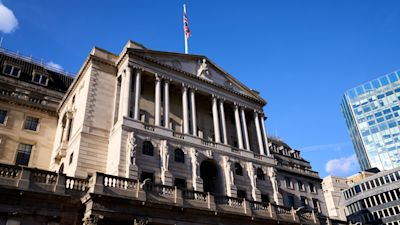Bank holds but signals interest rates are set to fall 'gradually'

ITV News' Business and Economics Editor Joel Hills explains the Bank of England's cautious decision to hold interest rates at 5%
Well, no one expected fireworks.
As anticipated, the Bank of England’s Monetary Policy Committee has voted 8-1 to keep interest rates on hold, although the minutes signal that a cut in November is firmly on the table.
Read now: Interest rates held at 5%, Bank of England confirms
In truth, very little has changed since the Bank lowered the cost of borrowing in August.
Since then, economic growth and the setting of both prices and pay by companies have played out in much the way the Bank expected.
“Inflationary pressures have continued to ease since we cut interest rates rates in August,” said the Governor, Andrew Bailey.
“If that continues, we should be able to rescue rates gradually over time,” he said.
The word “gradually” is doing a lot of heavy lifting here - and is splendidly ambiguous. Does it mean a cut at every meeting going forward? A cut at every other meeting?
We’ll find out as we go along.
The nine members of the committee take slightly different views onto whether inflation has been successfully brought under control, but all seem to agree that the direction of travel looks positive and that “gradual” is a word they can endorse.
What happens next depends to some degree on the tax and spending decisions the chancellor makes in the Budget next month.
Government consumption has helped to drive what economic growth we have had this year, but we know that will not continue.
Rachel Reeves has already expressed horror about the degree to which the government is overspending and is preparing to reign things in.
Subscribe free to our weekly newsletter for exclusive and original coverage from ITV News. Direct to your inbox every Friday morning.
The Bank has also decided to maintain the pace of UK government bond sales in the year ahead.
This is debt the Bank acquired during the financial crisis and then the pandemic in an attempt to keep borrowing costs as low as possible.
The stock of bonds at the Bank stands at £659 billion, and the Bank will reduce this by £100 billion over the next 12 months.
In one sense this is a welcome sign of a return to something like normality, but one unfortunate side-effect in doing so incurs losses for the Treasury, potentially restricting the chancellor's room for manoeuvre.
Want a quick and expert briefing on the biggest news stories? Listen to our latest podcasts to find out What You Need To know...